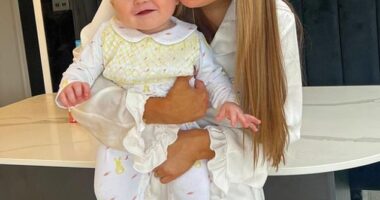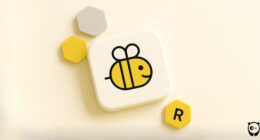An American woman living in Australia has sparked a lively discussion online after sharing the slang and quirks she’s picked up since moving Down Under.
Tara Lappen, who grew up in Austin, Texas but now lives on the NSW Central Coast, admitted that her everyday vocabulary has completely shifted since settling in Australia for her husband.
‘These are all the things that I now say in Australia that I never said before moving here,’ she explained in a TikTok.
Her list included classics like ‘good onya’ – which she described as another way of saying ‘good for you,’ and she admitted it’s become one of her favourites.
Tara also enjoys the confusing but much-loved ‘yeah nah’ and ‘nah yeah,’ phrases she says you simply learn to navigate over time.
She’s also noticed a tendency to start sentences with an ‘ah’ sound, something she said she’s unconsciously picked up.
‘I don’t know if most Aussies actually know that they do this but they make this “ah” sound before a sentence,’ Tara said.
‘I do that now too.’

An American woman living on the NSW Central Coast has sparked a lively discussion online after sharing the Aussie slang and quirks she’s picked up since moving Down Under
The American also started adding ‘hey’ to the end of her sentences as a way of saying ‘right?’ or checking in with the listener.
Other words that have made their way into her daily language include ‘bogan,’ which she admits she loves for no particular reason, and ‘sookie,’ which she now uses to describe her dog whenever it whines for attention.
For many expats, adjusting to Australian social norms can be as big a shift as the slang itself.
The casual, ironic tone embedded in phrases like ‘good onya,’ the laid-back ‘hey’ tagged onto sentences, or even the playful teasing of words like ‘sookie la la’ can feel strange at first.
But over time, these linguistic quirks become second nature – even for those who grew up thousands of kilometres away.
Tara’s experience reflects the journey many newcomers face: the longer you live here, the more you realise that language is the gateway to fitting in, from banter with colleagues to conversations at the pub.
Her video sparked plenty of debate in the comments, with Australians quick to offer context.
‘”Hey” is the Australian version of the Canadian “eh”,’ one person wrote.

Tara Lappen, who grew up in Austin, Texas, admitted that her everyday vocabulary has completely shifted since settling in Australia for her husband
Another added, ‘To really emphasise the ‘sookie,’ say ‘sookie la la’.’
Others pointed out regional differences, with one explaining, ‘”Hey” gets used more on the northeast coast of Australia, not so much in the West, Victoria or Tassie.’
Meanwhile, several noted that ‘good onya’ is most often used ironically, with one follower warning, ‘Just remember that ‘good onya’ is most often used when someone stuffs up or makes a mess.’
While other Aussies were stunned to learn they have been making the ‘ah’ sound without even realising it.
‘I did not realise we say “ah” at the start wow,’ one said.
‘Wait… the “ah” thing… how did I not notice this before?!’ another pointed out.
Expats also chimed in with their own additions, including one who admitted, ‘I say “reckon” like every time I have a thought now. Was never a thing before.’
Tara’s post is just one of many from foreigners living in Australia who share the quirks, habits and social codes they’ve adopted, from shortening words to learning the subtle art of Aussie humour.
For many, it’s proof that while the cultural adjustment can be daunting, those little language shifts are what make you feel at home.
Expats also chimed in with their own additions, including one who admitted, ‘I say “reckon” like every time I have a thought now. Was never a thing before.’
Tara’s post is just one of many from foreigners living in Australia who share the quirks, habits and social codes they’ve adopted, from shortening words to learning the subtle art of Aussie humour.
For many, it’s proof that while the cultural adjustment can be daunting, those little language shifts are what make you feel at home.









